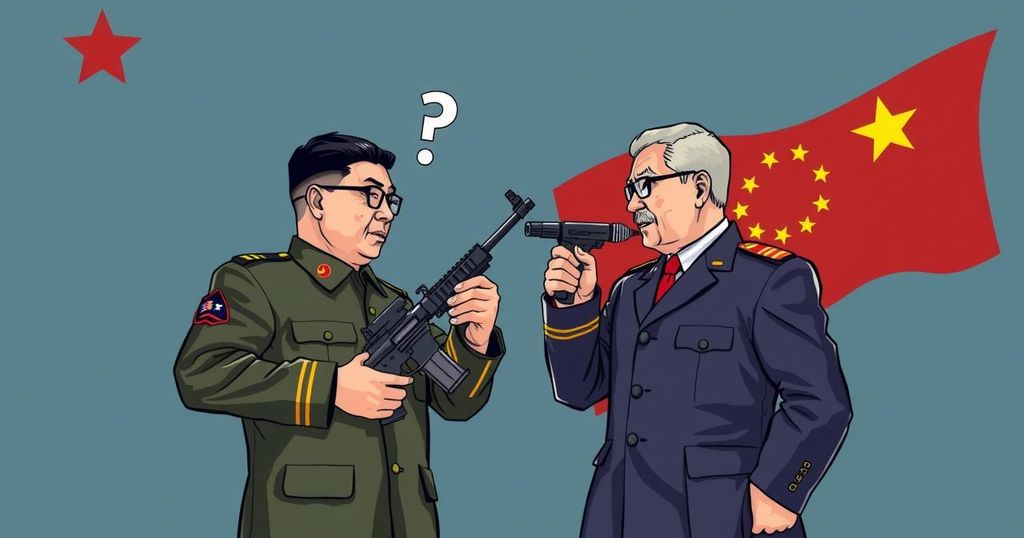How North Korea’s Troop Deployment to Russia is Transforming Chinese Attitudes
North Korea’s troop deployment to assist Russia in the Ukraine war has transformed its image from a ‘neighborhood hooligan’ into an admired ally among some in China. This development reflects broader shifts in public perception and regional politics, as former disdain is replaced with a sense of national pride in North Korea’s assertiveness.
In a remarkable turn of events, North Korea’s recent troop deployment to Russia has significantly altered its image among the Chinese populace. Once viewed with disdain, the regime is now perceived more favorably, as many Chinese see this action as a bold move supporting Russia amid the Ukraine conflict. Historically, Chinese attitudes leaned towards viewing North Korea as a troublesome neighbor, characterized by its erratic behavior and disregard for regional stability, especially through its nuclear pursuits. During my 18 years residing in mainland China, I engaged with numerous individuals who expressed their negative perceptions of North Korea. Many would describe the regime as “shameless” due to its reliance on Chinese aid while simultaneously posing a threat to the region’s security. Additionally, discussions often highlighted North Korea’s dire economic situation, where the ruling elite appeared to prosper amid widespread poverty affecting its citizens. In contrast to these past sentiments, recent developments have fostered curiosity and admiration among parts of the Chinese public. The narrative shifted as North Korea positions itself as a supporter of Moscow, which resonates with an increasing number of individuals who view this alliance as a commitment to a united front against Western influences. This transformation in perception underscores a complex interplay of regional politics, nationalism, and public sentiment in China, reflecting a growing admiration for a North Korea perceived as assertive rather than reckless. North Korea’s contemporary trajectory, particularly its cooperation with Russia, is pivotal. It signifies potential shifts in alliances and could influence how China navigates its relationships in an increasingly polarized international context. As North Korean troops engage in this foreign conflict, their actions might further redefine roles within this trilateral dynamic involving China, Russia, and North Korea.
The article examines the evolving perspective of the Chinese public towards North Korea following its recent troop deployment to assist Russia in the Ukraine war. Historically, North Korea was regarded unfavorably by many in China, who saw it as a disruptive force with a volatile regime that poses risks via nuclear threats and economic instability. However, this recent military involvement appears to be reshaping those views, aligning North Korea with Russian interests and fostering a sense of national pride among some segments of the Chinese population.
In conclusion, North Korea’s troop deployment to Russia has instigated a shift in public perception in China, transforming an image of derision into one of admiration. The complexities of regional politics, national pride, and shared interests are critical in understanding this change. As North Korea asserts itself in support of Russia, the prospect of a revitalized relationship between these nations could play a significant role in shaping future regional dynamics.
Original Source: www.scmp.com




Post Comment